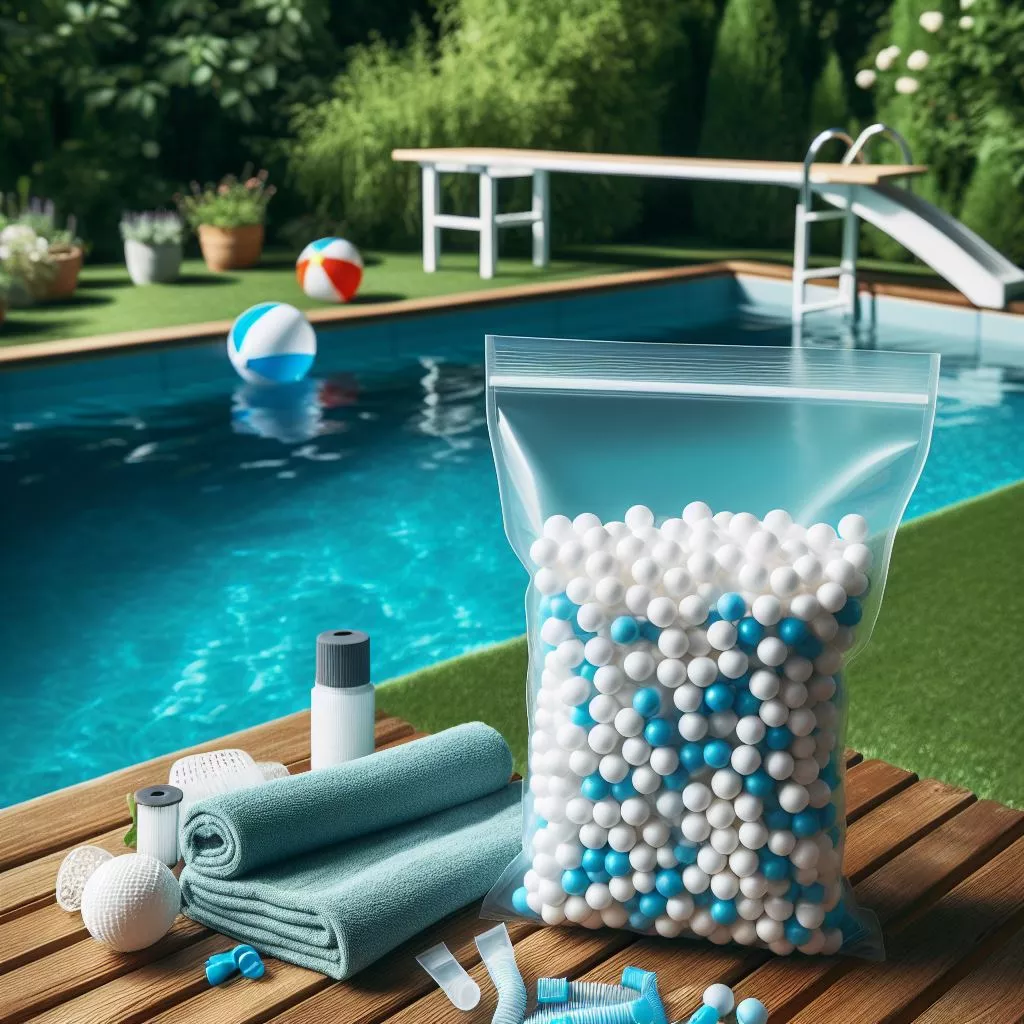Swimming pools serve as oases of relaxation and recreation, but maintaining pristine water quality is paramount to ensuring a safe and enjoyable experience for swimmers. Pool filter balls, a modern alternative to traditional sand filters, are designed to effectively remove impurities and maintain water clarity. However, as these filter balls age, their performance may diminish, leading to various water quality issues. In this article, we’ll explore the impact of aging pool filter balls on water quality, potential causes of deterioration, signs of aging to watch for, and strategies for maintaining optimal filtration efficiency.

Understanding Pool Filter Balls and Their Role
Pool filter balls, also known as filter media balls or pool filter balls, are innovative alternatives to traditional sand filters. Made from durable polyethylene or polyester materials, these lightweight balls boast high surface area and excellent filtration capabilities. They are designed to trap debris, dirt, and contaminants, keeping pool water clean and clear.
Diminished Filtration Efficiency
As pool filter balls age, their effectiveness in trapping impurities may decline. Over time, the surface of the filter balls can become coated with accumulated debris, oils, and organic matter, reducing their ability to capture additional contaminants. This diminished filtration efficiency can result in cloudy water, decreased water clarity, and increased levels of suspended particles, compromising water quality.
Reduced Flow Rate
Aging pool filter balls may also impede water flow within the filtration system. Accumulated debris and sediment can clog the spaces between the filter balls, hindering water circulation and reducing flow rates. A decreased flow rate not only diminishes filtration efficiency but also prolongs water turnover time, potentially allowing contaminants to accumulate and degrade water quality.
Altered Water Chemistry
Changes in water chemistry can occur as a result of aging pool filter balls. Accumulated debris and organic matter trapped within the filtration media can decompose over time, releasing compounds that affect water pH and alkalinity. Additionally, inadequate filtration can lead to the buildup of chloramines and other disinfection byproducts, altering water chemistry and potentially causing skin and eye irritation among swimmers.
Microbial Growth
Aging pool filter balls provide an ideal environment for microbial growth if not properly maintained. Organic matter trapped within the filtration media can serve as a nutrient source for bacteria, algae, and other microorganisms. Without adequate filtration, microbial populations can proliferate, leading to the formation of biofilms and algae blooms that degrade water quality and create unsanitary swimming conditions.
Signs of Aging and Deterioration
Several indicators may signal the aging and deterioration of pool filter balls:
Loss of Shape and Integrity: Over time, pool filter balls may lose their original shape and integrity, becoming misshapen or deformed due to wear and tear.
Accumulated Debris: Visible accumulation of debris, dirt, and organic matter on the surface of filter balls indicates reduced filtration efficiency.
Decreased Water Clarity: Cloudy or turbid water is a common sign of inadequate filtration caused by aging filter balls.
Reduced Flow Rate: A noticeable decrease in water flow or pressure within the filtration system suggests clogging or blockage caused by aged filtration media.
Strategies for Maintaining Optimal Filtration Efficiency
To mitigate the impact of aging pool filter balls on water quality, several strategies can be employed:
Regular Cleaning: Periodic cleaning of pool filter balls helps remove accumulated debris and organic matter, restoring filtration efficiency.
Backwashing: Regular backwashing of the filtration system helps dislodge trapped contaminants from the filtration media, improving water flow and quality.
Replacement: When pool filter balls show signs of significant deterioration or loss of effectiveness, timely replacement with new filtration media is necessary to maintain optimal filtration efficiency.
Water Testing: Regular water testing for pH, alkalinity, chlorine levels, and microbial contaminants helps monitor water quality and identify potential issues caused by aging filter balls.
Conclusion
Aging pool filter balls can have a significant impact on water quality, compromising filtration efficiency, altering water chemistry, and promoting microbial growth. Recognizing the signs of aging and deterioration, implementing proper maintenance practices, and timely replacement of filtration media are essential for preserving water quality and ensuring a safe and enjoyable swimming experience for all. By understanding the impact of aging filter balls and implementing proactive measures, pool owners can maintain pristine water quality and create a welcoming environment for swimmers to enjoy.
